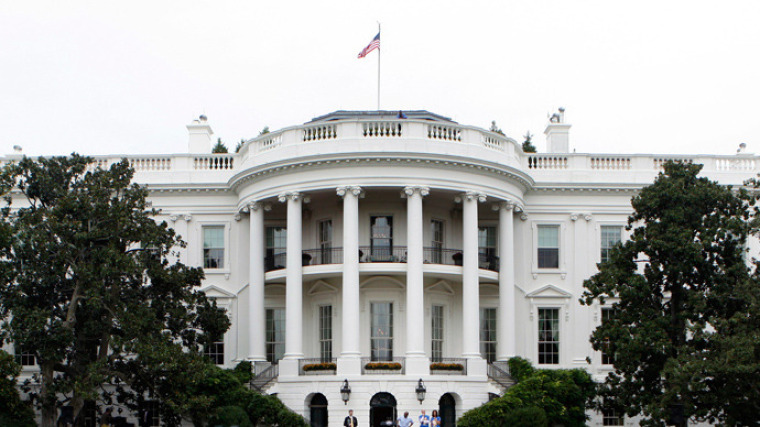Senate Report Details Interrogation Tactics Used By CIA

A recent Senate Intelligence Committee report detailing post-9/11 CIA interrogation tactics reveals practices of sleep deprivation, forced feeding and waterboarding.
The report, released Tuesday, suggests the CIA mislead White House officials and the public regarding the level at which they were practicing enhanced interrogation techniques on detainees suspected of being affiliated with the al Qaeda terrorist organization.
The report, which took six years to compose by the Senate Intelligence Committee, explains that CIA black sites were set up all over the world in countries like Thailand, Poland, Romania and Afghanistan where interrogators would practice different techniques, approved by psychologists, to get detainees to reveal information.
Some of the techniques included sleep deprivation for 180-hours, forced rectal feeding, waterboarding and physical methods, such as "insult slaps."
Dianne Feinstein, the Senate Intelligence Committee Chair, said in a foreword of the report that the enhanced interrogation acts performed by the CIA are a "stain on our values, and on our history."
Others, including President Obama, have also sought to decry the practices used by the CIA after the September 11 terrorist attacks in New York City.
The president said in a statement that the release of the report reasserts his "longstanding view that these harsh methods were not only inconsistent with our values as a nation, they did not serve our broader counterterrorism efforts or our national security interest."
Former CIA directors and deputy directors refuted the contents of the report in an Op-Ed published in the Wall Street Journal, writing: "On that important issue it is important to know that the dilemma CIA officers struggled with in the aftermath of 9/11 was one that would cause discomfort for those enamored of today's easy simplicities: Faced with post-9/11 circumstances, CIA officers knew that many would later question their decisions—as we now see—but they also believed that they would be morally culpable for the deaths of fellow citizens if they failed to gain information that could stop the next attacks."
 Christians don't have to affirm transgenderism, but they can’t express that view at work: tribunal
Christians don't have to affirm transgenderism, but they can’t express that view at work: tribunal Archaeology discovery: Medieval Christian prayer beads found on Holy Island
Archaeology discovery: Medieval Christian prayer beads found on Holy Island Presbyterian Church in America votes to leave National Association of Evangelicals
Presbyterian Church in America votes to leave National Association of Evangelicals Over 50 killed in 'vile and satanic' attack at Nigerian church on Pentecost Sunday
Over 50 killed in 'vile and satanic' attack at Nigerian church on Pentecost Sunday Ukrainian Orthodox Church severs ties with Moscow over Patriarch Kirill's support for Putin's war
Ukrainian Orthodox Church severs ties with Moscow over Patriarch Kirill's support for Putin's war Islamic State kills 20 Nigerian Christians as revenge for US airstrike
Islamic State kills 20 Nigerian Christians as revenge for US airstrike Man who served 33 years in prison for murder leads inmates to Christ
Man who served 33 years in prison for murder leads inmates to Christ


 Nigerian student beaten to death, body burned over ‘blasphemous’ WhatsApp message
Nigerian student beaten to death, body burned over ‘blasphemous’ WhatsApp message 'A new low': World reacts after Hong Kong arrests 90-year-old Cardinal Joseph Zen
'A new low': World reacts after Hong Kong arrests 90-year-old Cardinal Joseph Zen Iran sentences Christian man to 10 years in prison for hosting house church worship gathering
Iran sentences Christian man to 10 years in prison for hosting house church worship gathering French Guyana: Pastor shot dead, church set on fire after meeting delegation of Evangelicals
French Guyana: Pastor shot dead, church set on fire after meeting delegation of Evangelicals ‘Talking Jesus’ report finds only 6% of UK adults identify as practicing Christians
‘Talking Jesus’ report finds only 6% of UK adults identify as practicing Christians Mission Eurasia ministry center blown up in Ukraine, hundreds of Bibles destroyed: 'God will provide'
Mission Eurasia ministry center blown up in Ukraine, hundreds of Bibles destroyed: 'God will provide' Church holds service for first time after ISIS desecrated it 8 years ago
Church holds service for first time after ISIS desecrated it 8 years ago Burger King apologizes for 'offensive campaign' using Jesus' words at the Last Supper
Burger King apologizes for 'offensive campaign' using Jesus' words at the Last Supper Uganda: Muslims abduct teacher, burn him inside mosque for praying in Christ’s name
Uganda: Muslims abduct teacher, burn him inside mosque for praying in Christ’s name